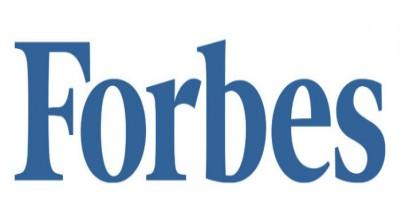Grassroots leadership - 3 inspiring leadership stories from the hinterland

Just the other day, a group of young colleagues and I were debating the relevance of the Great Man Theory of Leadership. The theory was propounded by philosopher Thomas Carlyle, who declared that "The history of the world is but the biography of great men." We have grown up with history texts that had us believe that it was the few, the powerful and the famous who shaped our collective destiny.
We wondered if this was true of the present. “Where are the Great men or women today?” asked one young colleague. “What great work is being done by the great leaders today,” commented another. I must confess that I have been a great admirer of Mahatma Gandhi and Nelson Mandela, both great men and great leaders. But I too have to admit that the theory appears to have lost its relevance today.
Look around. There are few famous leaders who are making a huge difference to our lives. In fact, there is growing despondency over the drought of great men or women at the helm of affairs right now. It is reflected in the deep freeze in leadership across the globe in tackling the perfect storm brewing around us.
And then, if we look again, there is a growing band of men and women at the grassroots, embodying leadership as we know it, passionately and relentlessly chasing their vision of tomorrow and driving change.
Happily, the scenario at the grassroots is the exact opposite of that at the top. There are many inspiring stories but I will highlight three people here, who decided to lead by example instead of chasing the archetypical big city dreams.
The first inspirational story is that of Sandeep Mehto, who hails from Pathrota village in the tribal area of Kesla in Madhya Pradesh, a state in central India. Mehto has been working diligently to build the foundation of rural India. Bharat Calling, his brainchild, is empowering underprivileged but bright students from villages in the poorest parts of India by helping them gain access to higher educational institutions. Mehto, who pursued education against all odds himself and completed a Masters at TISS, follows a model of aptitude testing, career counseling, tutoring and mentoring before helping these children enroll at universities. With a pilot programme launched in Madhya Pradesh, the initiative successfully enrolled students from more than 40 villages into good universities for the first time in the history of the region. This year, they are planning to scale up efforts and are hoping to cover 4,500 children in 21 schools from 60 villages.
In one of my previous blog posts, I had written about Solar Demi, a man who is lighting homes in poor neighbourhoods in Philippines with soda bottles turned into makeshift solar light bulbs. My second story is that of Harish Hande, our very own technologically-savvy avatar of Solar Demi. Hailing from Handattu in Udipi district, Karnataka, Hande was raised in Rourkela, Orissa. He completed his basic schooling in Orissa and went on to IIT Kharagpur and further to the US to do his Masters in Engineering at the University of Massachusetts.
He returned home to literally put power in the hands of the poor with his social enterprise, Selco India, and in the process lit up over 120,000 households with solar power. What started as an experiment to promote a sustainable model for rural electrification has today won Harish Hande the Ramon Magsaysay Award last year.
The third story is an incredible account of leadership displayed by a man fondly referred to as ‘Uncle Moosa’ in the hills of Arunachal Pradesh, a state in north eastern India. A one-man army driven by a vision to plant the seeds of reading in the minds of children, Uncle Moosa has been pivotal in the setting up of as many as 13 libraries in far flung places like Wakro, Chongkham, Anjaw, and Lathao.
Sathyanarayan Mundayoor, Uncle Moosa’s real name, began this crusade by carrying a trunk-load of books in public transport to organize book exhibitions in remote villages in the region. The spark lit a fire and he has since collaborated with several like-minded well wishers to source carefully selected books – ranging from Amar Chitra Katha to Roald Dahl, Ruskin Bond, and Dr. Seuss – and initiate a veritable library movement. These libraries are actually run by children enlisted as ‘library activists’ and have become a hub of activities, including story-telling, booking readings, and enactments – nurturing the power of imagination.
Each one of these people is a rightful leader. Not the powerful or famous of the Great Man theory, but leaders who are driving positive change in their sphere of influence. They are seeking results and transformation, not applause or recognition. They draw their strength from strengthening others.
So, coming back to the discussion with my colleagues, as one of them suggested, maybe it is time to replace the Great Man theory with the ‘Great Work’ theory of leadership! Wouldn’t you agree?

